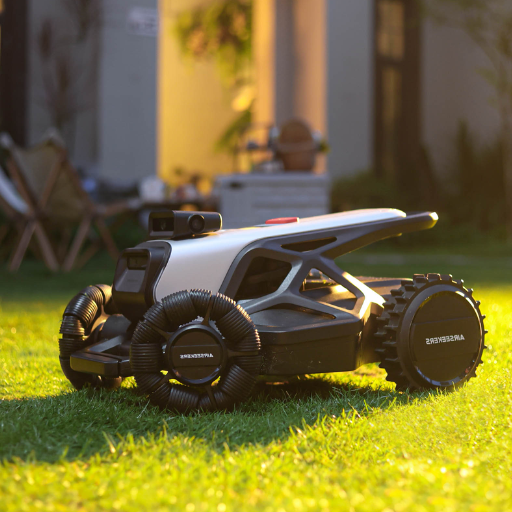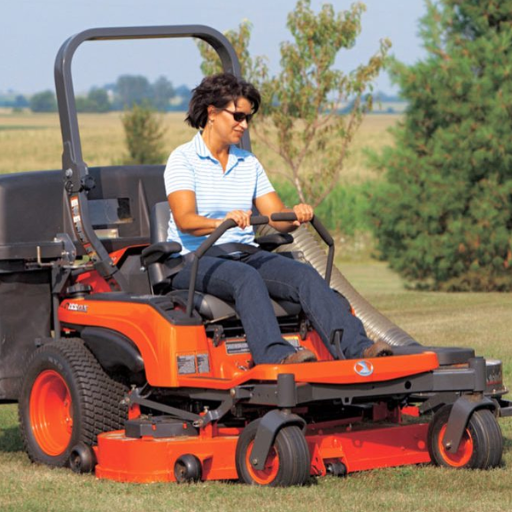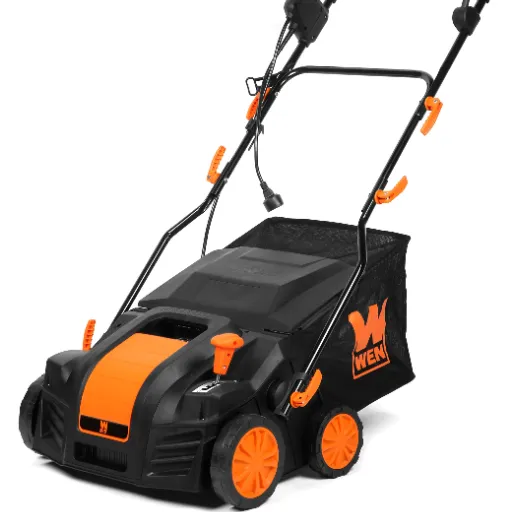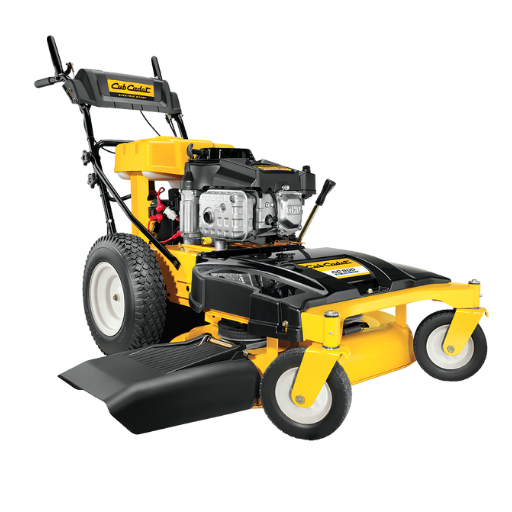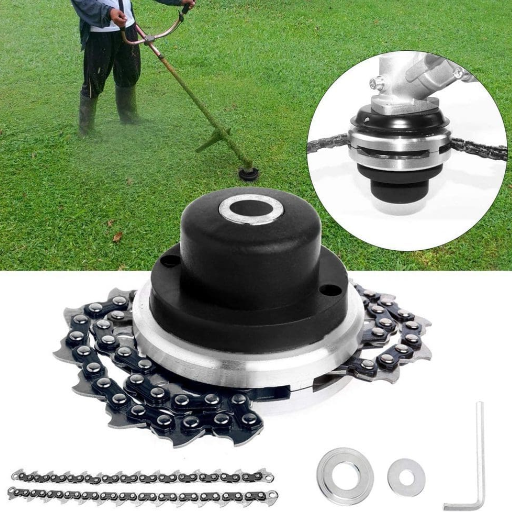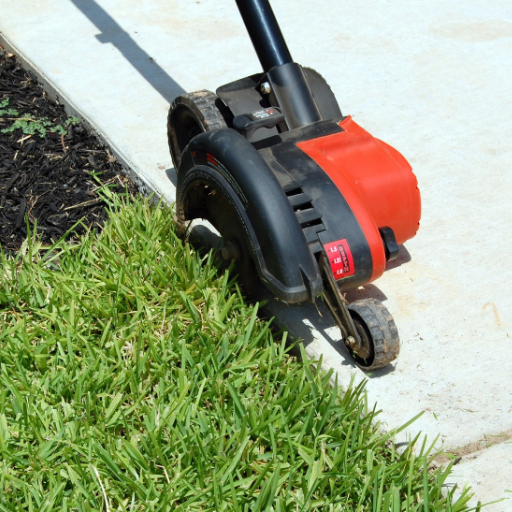Tackling big canopies of vegetation, heavy brush, and sturdier weeds can challenge any person without the proper tool for the job. A good heavy-duty brush cutter can really make the difference in clearing sprawling land, making trail maintenance easier, or just tidying up the backyard jungle. This guide will help you cut through the noise—pun intended—to find the tool that best suits your needs. We’ll discuss the features to look for and some of the top recommended models.
Understanding Heavy-Duty Brush Cutters

Heavy-duty brush cutters are designed to clear all kinds of hard and dense vegetation that ordinary lawn mowers or trimmers cannot manage. They possess robust engines, heavy cutting blades, and reinforced designs that help in cutting everything from thick grass and shrubs to small tree saplings.
What is a Heavy-Duty Brush Cutter?
Heavy-duty brush cutters provide powerful processing in landscape creation due to their specialized system for controlling overgrown vegetation that standard lawn gear cannot handle. Equipped with powerful engines, sharp blades made of hard materials, and reinforced construction, these tools can slice through heavy grass, thick brush, overgrown weeds, and even small tree saplings with ease.
Modern Features Include:
- Anti-vibration systems – Reduce operator fatigue during extended use
- Fuel-saving technologies – Enhanced efficiency and environmental protection
- Interchangeable blade compatibility – Adapt to different terrain and vegetation levels
- Ergonomic handles – Adjustable for comfort during prolonged use
Key Features of Heavy-Duty Brush Cutters

| Feature | Benefit | Application |
|---|---|---|
| Durability and Robust Build | Withstands difficult conditions and reduces wear | Dense vegetation, thick brush, overgrown areas |
| Anti-Vibration System | Reduces operator fatigue and improves precision | Extended use periods, professional applications |
| Fuel Economy | Longer operation time, reduced costs | Large-scale projects, commercial use |
| Interchangeable Blades | Versatility for different terrain types | Mixed vegetation, varying job requirements |
| Ergonomic Design | Comfortable operation, weight distribution | All-day use, reduced operator strain |
| Powerful Engines | Smooth cutting through hard materials | Professional landscaping, challenging terrain |
Benefits of Using a Brush Cutter for Overgrown Areas
Efficient Clearing of Thick Vegetation
Brush cutters target the densest, most overgrown areas that ordinary lawn mowers or trimmers cannot penetrate. They cut through tall grass, weeds, and even small saplings, saving significant time and effort.
Enhanced Durability and Power
Equipped with sharp blades and powerful engines designed for heavy-duty jobs, these tools maintain performance under tough conditions, making them highly reliable for extensive clearing projects.
Versatility Across Different Terrain
Whether dealing with uneven ground, steep slopes, or rocky terrains, brush cutters maintain proper functionality across various conditions thanks to their sturdy construction.
Reduced Labor Costs and Increased Efficiency
By eliminating the need for manual clearing or multiple tools, brush cutters significantly reduce labor costs and increase productivity, making them an economically wise choice for extensive land management projects.
Types of Brush Cutter Attachments

Metal Blades
Provide superior cutting action through thick grass, dense shrubs, and small trees. Available in two-prong, three-prong, or multi-tooth designs for specific efficiency and precision needs.
Nylon Trimmer Heads
Excellent for lighter tasks involving grass and weeds in areas requiring detail or careful maneuvering. Ideal for working safely near fences, walls, and flowerbeds.
Chainsaw Attachments
Transform your brush cutter into a chainsaw for cutting larger branches and small trees. Essential equipment for pruning and clearing thicker growth.
Hedge Trimmer Attachments
Used for shaping hedges and bushes with precision. Provide accessibility for high or irregularly-shaped plantings.
Cultivator Attachments
Occasionally fitted for tilling soil, making brush cutters suitable for garden work or land preparation for planting.
Brush Cutter Attachments for Skid Steer
Skid steer brush cutters are heavy-duty attachments designed for large-scale land clearing and vegetation management. These powerful attachments make short work of difficult tasks, from cutting overgrown brush to thick grass, saplings, and small trees.
Key Features and Benefits:
- High Cutting Power: Heavy-duty blades efficiently cut thick vegetation up to 4 inches in diameter
- Hydraulic Power Utilization: Use skid steer hydraulics for consistent power (15-40 GPM flow requirements)
- Durable Construction: Built with high-strength steel and reinforced decks for extended product life
- Cutting Width Options: Available from 60 inches to over 78 inches for flexible operation
- Safety Features: Closed-front decks and debris shields protect operators from flying debris
Comparing Different Brush Cutter Blades

| Blade Type | Best For | Advantages | Considerations |
|---|---|---|---|
| Two-Blade Systems | Grass and light brush | Versatile, efficient, fast operation | May struggle with thicker vegetation |
| Three-Blade Systems | Heavy clearing work | Greater cutting capability, handles woody brush | More complex design |
| Mulching Blades | Aesthetic landscapes | Finely cuts clippings, minimal cleanup | Specialized application |
| Carbide-Tipped Blades | Toughest materials | Superior durability, 2-3x longer lasting | Higher initial cost |
Top Models of Heavy-Duty Brush Cutters
Husqvarna 336FR
Known for superior build and reliability. Features trimmer head, grass blade, and saw blade combinations. Anti-vibration system ensures smooth operation during prolonged use.
Stihl FS 131
Recognized for strength and durability with a powerful 36.3cc engine. Ergonomic design balances power with comfort. Low emission engine appeals to eco-minded users.
Echo SRM-410X
Known for highest torque and cutting power. Commercial-grade engine with heavy-duty rated tank capacity for extended clearing sessions.
Makita EM403MP
Reliable brush cutter with precision-engineered components. Well-built for various landscaping needs while remaining light enough to reduce operator fatigue.
Ryobi RY4CSS
Affordable option with heavy-duty capability. 4-stroke engine eliminates fuel mixing and offers smooth power output for medium-tough brush clearing.
Best Brush Cutters for Skid Steer
- CAT BRX118 Brush Cutter: Strong build with innovative blade design for overgrown vegetation and heavy brush
- Bobcat 72-inch Brushcat™ Rotary Cutter: Powerhouse with 72-inch cutting width and floating deck for uneven terrain
- John Deere RX72 Rotary Cutter: Precision-designed with tremendous cutting power and high-speed rotor system
- Blue Diamond® Xtreme Brush Cutter: Industrial-grade for hard brush and light trees with sturdy construction
- Virnig V50 Rotary Brush Cutter: Industry favorite with adjustable skid shoes and reinforced plating
Electric vs. Gas-Powered Brush Cutters
| Feature | Electric | Gas-Powered |
|---|---|---|
| Environmental Impact | Eco-friendly, zero emissions | Higher emissions |
| Noise Level | Quieter operation | Noisier |
| Maintenance | Easier maintenance | Regular maintenance required |
| Power | Limited for heavy-duty tasks | Superior power for thick brush |
| Runtime | Limited by battery life | Extended operation time |
| Best For | Smaller yards, lighter tasks | Large areas, professional use |
Maintenance and Care for Brush Cutters

Essential Maintenance Tips
- Clean After Every Use: Remove debris and dirt to prevent performance degradation and air filter clogs
- Check and Replace Spark Plug: Examine seasonally and replace every 100 hours of operation
- Monitor Fuel System: Use fresh, quality fuel and empty tank during long storage periods
- Inspect Cutting Components: Ensure blades are sharp and undamaged; replace worn trimmer line
- Lubricate Moving Parts: Apply manufacturer-specified lubricants to gears, shafts, and moving components
Blade Sharpening and Replacement Process
Safety First Protocol:
- Turn off machine and disconnect power source
- Wear safety gloves and goggles
- Use proper tools and secure work area
- Remove the Blade: Use appropriate wrench to loosen securing bolt
- Clean Thoroughly: Remove all dirt, grass, and debris
- Secure for Sharpening: Clamp blade safely in vise
- Sharpen Evenly: Maintain original 30-40 degree bevel angle
- Check Balance: Ensure even weight distribution to prevent vibrations
- Reinstall Properly: Tighten to manufacturer specifications with correct alignment
Choosing the Best Brush Cutter for Your Needs
Factors to Consider When Selecting
Power Source Options
- Gas Brush Cutters: Best for heavy-duty clearing, large areas, dense vegetation
- Electric Brush Cutters: Ideal for small yards, light tasks, quiet operation
- Battery Brush Cutters: Growing popularity for portability and advancing battery technology
Cutting Blades and Attachments
- Steel Blades: Essential for thick vegetation, small trees, tough weeds
- Nylon Line Attachments: Perfect for grass and lighter vegetation
- Quick-Swap Systems: Increasing popularity for versatility and convenience
Recommendations for Different User Types
| User Type | Recommended Power Source | Popular Brands | Key Considerations |
|---|---|---|---|
| Homeowners | Electric/Battery | Ego Power+, Greenworks | Lightweight, user-friendly, minimal maintenance |
| Professionals | Gas-Powered | Husqvarna, Stihl | Higher power, longer runtime, durability |
| Eco-Conscious | Battery/Electric | Ryobi, Makita | Extended battery life, energy efficiency |
| Versatility Seekers | Multi-Functional | Toro, DeWalt | Interchangeable attachments, adaptability |
Understanding Specifications and Power Ratings
Power ratings, typically measured in horsepower (HP) or kilowatts (kW), indicate the machine’s capacity to handle tough vegetation during prolonged use. Consider these guidelines:
- 0.7 to 1.5 kW: Suitable for residential and small gardening work
- 2.0 kW or higher: Ideal for commercial or industrial heavy-duty clearing
- Additional Factors: Cutting width, blade type, attachment compatibility, and fuel consumption
References
-
University of California Agriculture and Natural Resources – Cutting: String Trimmers / Brush Cutters: Provides detailed insights into the functionality and applications of string trimmers and brush cutters.
-
Orlando Sentinel – The Best Brush Cutter: Offers a review of heavy-duty brush cutters, including versatile options like the Remington RM2700 Ranchero.
-
Deer Hunter Forum – Stihl Heavy Duty Trimmer / Brush Cutter: Discusses the capabilities of Stihl heavy-duty trimmers and brush cutters, including their ability to cut small trees.
Frequently Asked Questions (FAQ)
What is a heavy-duty brush cutter?
Being heavy-duty, a brush cutter is a powerful tool capable of dealing with thick brush, tall grass, and even smaller trees. Heavy-duty machines run on powerful engines and have very sharp blades; hence, they are suitable for large-scale land clearing operations, both in residential and commercial applications.
How does a brush cutter attachment work?
A brush cutter attachment can be mounted on various machines, such as on tractors or skid steer, for higher heavy-duty clearing requirements. The attachment has a rotating blade that cuts through tough vegetation, thus enabling good land management and maintenance.
What are the important specifications to consider for a heavy-duty brush cutter?
When selecting a heavy-duty brush cutter, I would say specs like engine power in cc, RPM, blade size, and cutting width should be considered. Other considerations should include whether it has a brushless motor, direct drive piston motor, and how easy it is to use.
Can a cordless electric brush cutter be as powerful as gas models?
To cut it short and to answer your question, cordless electric brush cutters are gaining more and more power, although gas ones still have more torque to tackle bigger jobs. That said, with newer battery tech, high-flow batteries are viable to electric option for use at home not having to worry about fuel.
What are the benefits of using a skid steer brush cutter?
A skid steer brush cutter gives you better maneuvering capabilities and does an efficient job in clearing the overgrown areas. When attached to a skid steer, the brush cutter can be quickly turned or positioned, making it ideal for removing tricky terrains, fence rows, and biggerilanthrupt .
How do I maintain my heavy-duty brush cutter?
To maintain a heavy-duty brush cutter, check the sharpness of its blade, keep the gearbox lubricated, and inspect all components-worn throttle, worn engine parts, etc. Cleaning and storing your cutter properly will undoubtedly extend its working life.



